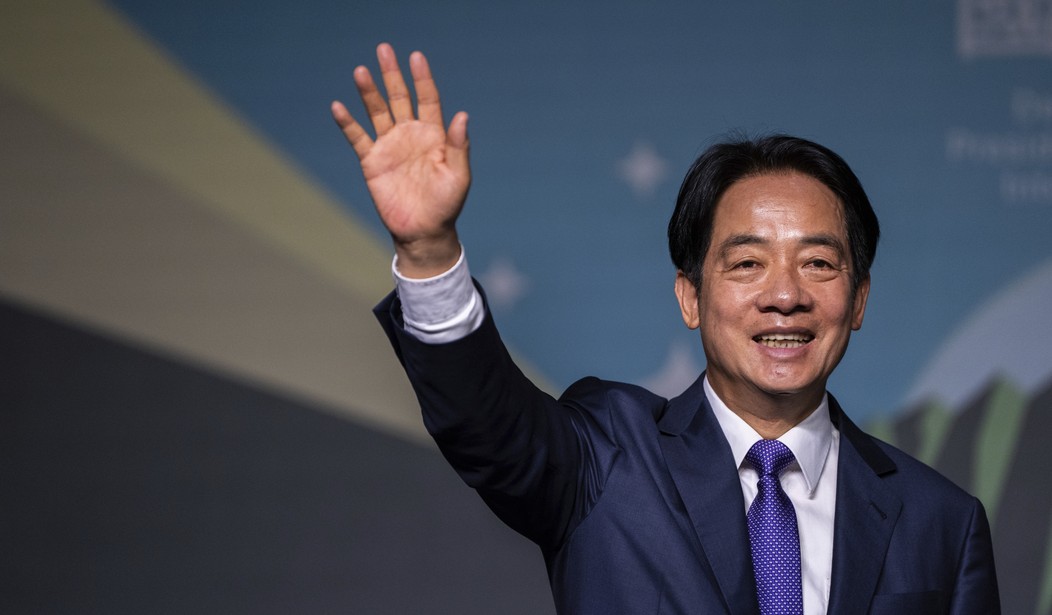In January, William Lai won the election in Taiwan to become the country's next president. As I described at the time, China was clearly not happy about this, fearing that Lai was more willing to openly push for independence than his predecessor Tsai Ing-wen. Before the election China had not-so-subtly warned that any move toward independence was a move toward war.
But while the threats may have worried some voters, they weren't enough to stop Lai from winning. For his part, he promised to maintain the status quo and not to do anything that would give China grounds for a military response.
Today, Lai was inaugurated and true to his word he didn't say anything too dramatic, but he did say that democracy in Taiwan was non-negotiable
Taiwan’s new President Lai Ching-te urged China to stop its hostile political and military threats against the island and work toward regional peace.
Lai, who was sworn in on Monday, said in his inaugural address that Taiwan “cannot make any concessions on democracy and freedom.”...
Taiwan’s constitution makes it clear that the Republic of China — Taiwan’s formal name — and the People’s Republic of China “are not subordinate to each other,” Lai said in his speech.
Lai also suggested that China should stop trying to bully Taiwan.
“I hope that China will face the reality of (Taiwan)’s existence, respect the choices of the people of Taiwan, and in good faith, choose dialogue over confrontation,” Lai said after being sworn into office.
Lai pledged to “neither yield nor provoke” Beijing and said he sought peace in relations with China. But he emphasized the island democracy is determined to defend itself “in the face of the many threats and attempts at infiltration from China.”
For several years now, China has been escalating the number of warplanes and ships it sends toward Taiwan, often on a daily basis. Since Lai won the election, China has been escalating those flights by coming closer to the island.
Since late April an increasing number of Chinese military planes and vessels have staged drills that have alarmed Taiwan, including close approaches to the island's contiguous zone, which is 24 nautical miles (44 km) off its coast, according to two Taiwan officials and internal reports reviewed by Reuters...
On May 11-12, about 10 Chinese vessels, including frigates and coast guard boats, were spotted near Taiwan and some approached Taiwan's contiguous zone, according to the government reports...
"Since late April they have become more and more provocative," the senior security official said.
China didn't initially respond after Lai's inauguration speech but they have since issued a statement criticizing it.
“We will never tolerate or condone any form of ‘Taiwan independence’ separatist activities,” said Chen Binhua, spokesperson of the Taiwan Affairs Office of China’s State Council.
“No matter how the situation on the island changes, no matter who is in power, it cannot change the fact that both sides of the Taiwan Strait belong to one China … and cannot stop the historical trend of the motherland’s eventual reunification,” Chen said.
China seems to be counting on the US being too bogged down with other conflicts to really support Taiwan .
Fu Kun-chi, a Nationalist Party member of Taiwan’s legislature who recently visited China, pointed to Ukraine as a warning.
“Since ancient times, people from a small country or region have not gone up against the biggest country next door for a fight,” Mr. Fu said in an interview. “Would it really be in the interest of Americans to have a war across the Taiwan Strait? I really don’t think so, and for the United States to face three battlefields at the same time, is it possible?”
It's not in anyone's interest to have a war between China and Taiwan. But if we're going to talk about the cost, it's not clear that China can afford it either. It's military could survive a battle with Taiwan but its economy would not survive being cut off from the US market as well as from our allies in Europe. For all the bluster, Xi Jinping must know that the cost of "reunification" would be extremely high.
Granted, Russia has survived so far by leaning heavily on China but China is too big to lean on anyone so Russia won't be able to return the favor. If Xi pulls the trigger on an invasion, China's economy is going to face a downturn that will make its current troubles look like a boom market by comparison.








Join the conversation as a VIP Member